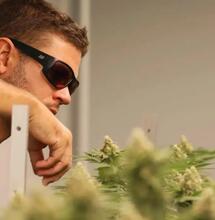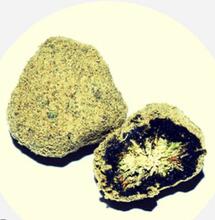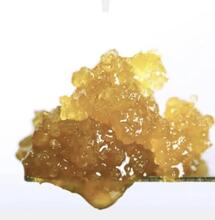Cannabis and Pets

Secondhand cannabis smoke may seem harmless. But it's a different and much scarier scenario for pets. If you've ever wondered if your pets can get high, the answer is yes, but they don't like it, and it's not good for them.
Pets can be affected by weed byproducts like secondhand smoke. It can dramatically alter their behaviour. Pets, particularly cats and dogs, have more cannabinoid receptors than people so they will feel the effects of THC more strongly. As well as being sensitive to THC, their lungs are easily irritated by smoke which can lead to problems like asthma or bronchitis.
A 2018 study focused on one cat exposed to cannabis smoke. Researchers found that the cat "developed alternate states of agitation and apathy, each lasting several minutes. The cat also demonstrated increased thirst, polyuria, attacks of gluttony mixed with periods of inappetence. The animal could not eat or drink by itself."
It is not just secondhand smoke that is the problem, either! There is also something called thirdhand smoke. This is defined as smoke that penetrates household surfaces like furniture and clothes. Cats and certain breeds of short-snouted dogs are especially susceptible to thirdhand smoke dangers.
Most cases of pet intoxication come from animals finding unsecured edibles or cannabis flowers and ingesting them, something which is happening more and more frequently as cannabis regulations are loosened. The Pet Poison Helpline in the U.S has seen an increase of more than 400% in the number of calls concerning cannabis-related incidents over the past six years. A Canadian study in 2021 also identified a rise in cases of illness in dogs due to eating raw cannabis or edibles.
Symptoms to look out for in a case of THC intoxication in your pet include disorientation, drooling, excess urination, vomiting, reduced heart rate and hyperactivity. Treatment usually involves an IV to replace fluids, anti-nauseants to stop vomiting, and activated charcoal to help the digestive system recover.
When it comes to CBD, there is little evidence to support the view that CBD. Therefore you should always get advice from your Vet before undertaking any such course of treatment. If your pet experiences accidental intoxication, it's crucial to keep them in a safe, familiar, comfortable place. Animals don't understand how they got high, they cant tell us how they feel, and they don't know when, if ever, things will end, so comforting them until it passes is a must.
To prevent your pets from being affected by your cannabis use, contain smoking or vaping to a single, well-ventilated room that your pet does not have access to. When it comes to storing your weed, a secured lockable stash box is your best bet to protect your pats and aby children.







